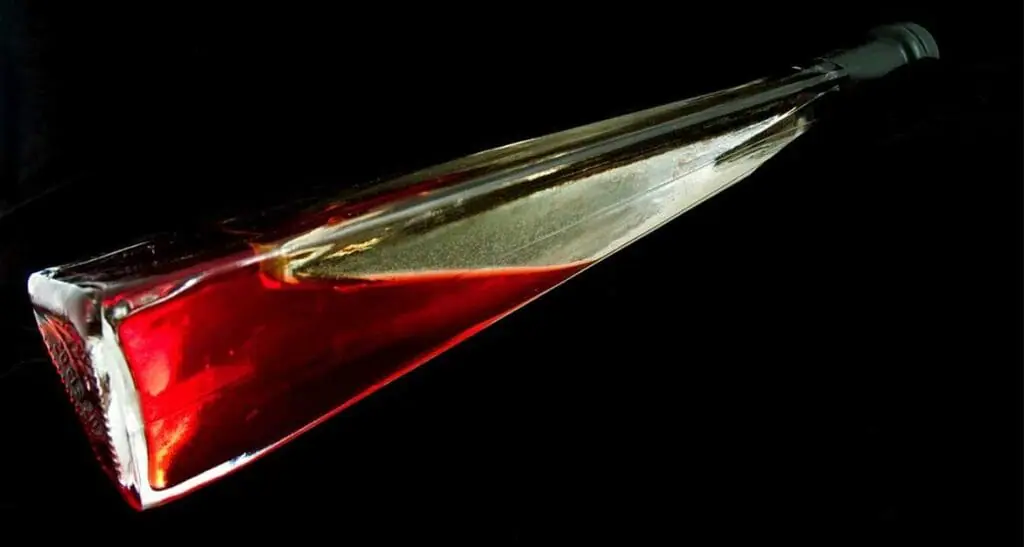
Making headlines and climbing Top 10 lists is not always a sign of success. Consider diabetes, which has swept the nation like wildfire. Diabetes is now the sixth leading cause of death in the United States.
Diabetes killed more than 70,000 Americans in 2001 alone. The disease also takes a toll on the people who live with it. Diabetes-related nerve damage accounts for more than half of all non-traumatic amputations in this country. Diabetes is also the leading cause of new cases of blindness and the leading cause of end-stage kidney disease.
In general, controlling diabetes requires massive lifestyle changes and/or expensive medications. Carol Johnston says there may be a cheaper, easier way to get the same results—in fact, you probably have the help in your kitchen cabinet.
Johnston is a professor of nutrition at Arizona State University’s East campus. When she started developing menus to help prevent and control diabetes, she began with a high-protein, low-carbohydrate diet. The diet worked amazingly well, but it involved major changes from the way people usually eat. Johnston feared they would give up and start downing Twinkies in no time. She wondered if there was an alternative.
Johnston struck gold while reading through some older studies on diabetes. Actually, she struck vinegar. “While writing my literature review I saw an article about vinegar. I was making all these massive changes. I found that maybe you can just add vinegar to your diet,” she says.
Five studies conducted in the 1980s suggested that vinegar could improve insulin sensitivity and thus help control diabetes. For some reason, the mass media and the public never caught on.
“It’s odd that no one ever pursued that,” Johnston says. She decided to take the opportunity herself.
In the ASU scientist’s study, participants drank one of two solutions before eating a high-carb meal of a bagel and orange juice. Some subjects drank a vinegar solution (vinegar, water and saccharine). Others were given a placebo drink (water and saccharine).
During the normal digestion process, the human body breaks down carbohydrates into a simple sugar called glucose. As glucose enters your bloodstream, the rise in blood sugar signals your pancreas to produce a hormone called insulin. Insulin helps move the glucose into body cells—such as muscles—where it is burned for energy or stored for later use.
Johnston says that the first stage of type 2 diabetes is called “insulin resistance.” In this stage, insulin becomes unable to move all of the sugar into the cells where it is needed. The pancreas begins churning out more and more insulin to compensate.
Eventually, the body is unable to produce enough insulin to overcome the resistance. The result is an abnormally high spike in blood sugar levels after meals. Repeated spikes cause damage to the body.
Ironically, one of the damaging effects is that these sugar level spikes destroy the cells that produce insulin, stopping insulin production completely and causing full-blown diabetes. Diabetics have high blood glucose levels most of the time, not just after eating.
Johnston used three types of subjects for her study. Some were diabetic, some were insulin-resistant (pre-diabetic), and some were healthy non-diabetics. She found that drinking vinegar helped reduce the usual blood sugar spikes in the insulin-resistant subjects. It helped the diabetics to a lesser extent.
In fact, drinking vinegar had the same effect as the leading diabetes medicines, which can cost $800 to $1,800 per year. In comparison, a year’s supply of vinegar would cost about $20.
If saving money doesn’t grab people’s attention, perhaps another result will. Johnston discovered that her subjects were losing weight.
After her initial experiment, Johnston conducted a longer study in which subjects consumed vinegar twice a day for four weeks. She wanted to see if vinegar would lower cholesterol levels. Unfortunately, it didn’t, but it did make subjects drop pounds.
“It was a good thing I weighed them!” says Johnston. She cautions that the study was not designed to study weight loss, and cannot be used to draw solid conclusions. But she plans to follow up on this discovery in future research.
So how, exactly, does a sour drink have such a big impact?
No one knows for sure, but Johnston suspects that vinegar affects carbohydrate digestion. She thinks that acetic acid—a component of vinegar—interferes with the enzymes that digest carbohydrates. So the simple carbs pass on through without stopping, much like fiber does.
Adding vinegar to the menu is much easier than massively cutting carbs. But it isn’t very tasty.
“I’m trying to develop a vinegar pill because most people won’t drink vinegar,” says Johnston.
Of course, there are tastier ways to get vinegar into your diet. The easiest is to eat a salad with a vinegar-based dressing before meals.
It is important to remember, however, that while vinegar can improve blood sugar levels, it has not been shown to prevent other ailments. Vinegar should be used in addition to a balanced diet and regular exercise—not as a replacement for them.
“In the four-week trial we saw weight loss but we did not see any improvement in blood cholesterol concentrations,” Johnston explains. “This suggests that folks still need to make wise choices in terms of processed and fatty foods. Since heart disease is the number one killer, folks need to keep this in mind as well as the blood sugar issue."